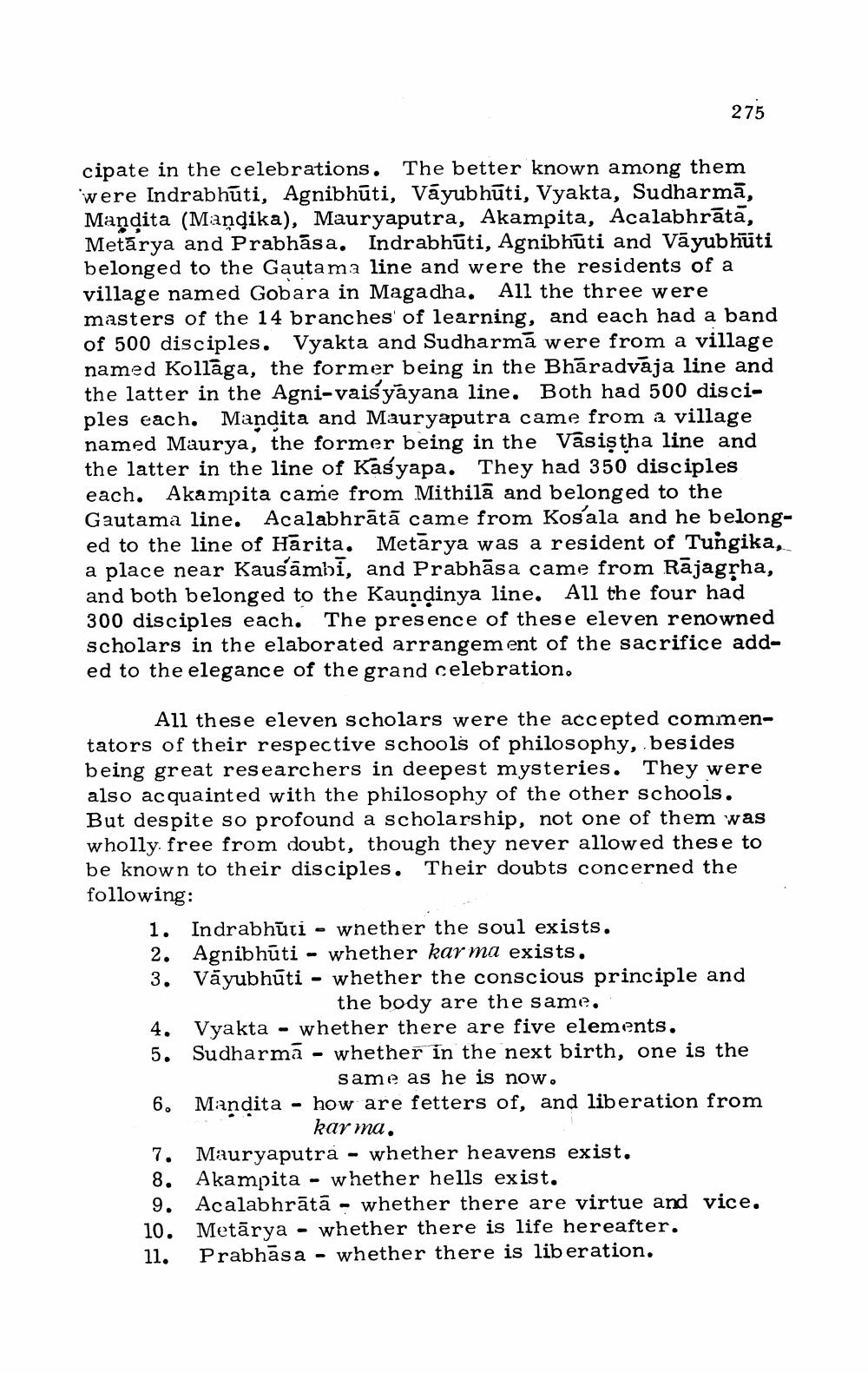________________
275
cipate in the celebrations. The better known among them were Indrabhūti, Agnibhūti, Váyubhūti, Vyakta, Sudharmā, Mandita (Mandika), Mauryaputra, Akampita, Acalabhrāta,
rya and Prabhāsa. Indrabhūti, Agnibhuti and Vāyub huti belonged to the Gautama line and were the residents of a village named Gobara in Magadha. All the three were masters of the 14 branches of learning, and each had a band of 500 disciples. Vyakta and Sudharma were from a village named Kollāga, the former being in the Bhāradvaja line and the latter in the Agni-vais yayana line. Both had 500 disciples each, Mandita and Mauryaputra came from a village named Maurya, the former being in the Vasistha line and the latter in the line of Kas yapa. They had 350 disciples each. Akampita came from Mithila and belonged to the Gautama line. Acalabhrātā came from Kosala and he belonged to the line of Harita. Metārya was a resident of Tungika, a place near Kausāmbi, and Prabhāsa came from Rājagsha, and both belonged to the Kaundinya line. All the four had 300 disciples each. The presence of these eleven renowned scholars in the elaborated arrangement of the sacrifice added to the elegance of the grand celebration.
All these eleven scholars were the accepted commentators of their respective schools of philosophy, besides being great researchers in deepest mysteries. They were also acquainted with the philosophy of the other schools. But despite so profound a scholarship, not one of them was wholly free from doubt, though they never allowed these to be known to their disciples. Their doubts concerned the following:
1. Indrabhūti - whether the soul exists. 2. Agnibhūti - whether kar ma exists. 3. Vāyubhūti - whether the conscious principle and
the body are the same. 4. Vyakta - whether there are five elements. 5. Sudharmā - whether in the next birth, one is the
same as he is now. 6. Mandita - how are fetters of, and liberation from
kar ma. 7. Mauryaputra - whether heavens exist. 8. Akampita - whether hells exist. 9. Acalabhrātā - whether there are virtue and vice, 10. Metārya - whether there is life hereafter. 11. Prabhāsa - whether there is liberation.




